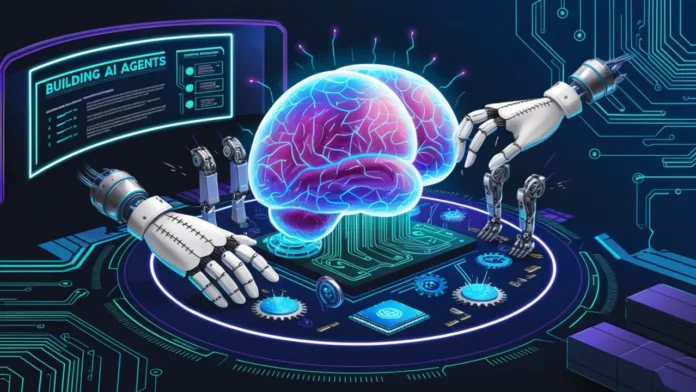💡 Introduction
In 2025, Artificial Intelligence has gone from being a general-purpose tool to becoming highly personalized, efficient, and business-specific. With the rise of Custom AI and Generative AI, organizations are now building their own AI models tailored for their exact needs — changing how industries operate and innovate.
This article explores how Custom AI is redefining the digital landscape, its key benefits, and real-world applications.
🤖 What is Custom AI?
Custom AI refers to artificial intelligence models trained and fine-tuned on an organization’s unique data, workflows, and business objectives. Unlike off-the-shelf AI like ChatGPT or Google Bard, custom AI systems are designed to meet specific use cases — making them more accurate, secure, and relevant.
✅ Example:
A hospital may use a custom AI model trained on patient records to diagnose diseases faster.
An e-commerce platform might build an AI that understands their product catalog and customer behavior for better recommendations.
🧠 Generative AI: The Creative Backbone
Generative AI (GenAI) takes things one step further by creating new content — from text, images, code, and even music — based on trained patterns. In 2025, many companies are combining Custom AI + Generative AI to produce content that’s not only relevant but deeply aligned with their brand voice and goals.
🔧 Tools Powering This Revolution:
OpenAI’s GPT APIs (custom fine-tuning)
Meta’s LLaMA 3 with open customization
Anthropic’s Claude AI
Google Gemini with enterprise-level customization
🏭 Industry Use Cases
1. Healthcare
Hospitals are training AI models on years of patient data to predict illness progression, suggest treatments, and even summarize doctor-patient conversations.
2. Finance
Custom AI in banking is used for fraud detection, customer support, and algorithmic trading tailored to a firm’s unique strategies.
3. Retail & E-Commerce
Companies like Amazon and Shopify merchants are using generative AI to write product descriptions, generate ads, and answer customer queries — all in their brand style.
4. Education
Ed-tech platforms like Khan Academy and Coursera are integrating AI tutors that adapt to each student’s learning pace, strengths, and weaknesses.
🔐 Benefits of Custom AI
Enhanced Accuracy: Models trained on domain-specific data are more precise.
Data Privacy: Keeps sensitive data in-house.
Faster Decision-Making: Reduces time spent on repetitive tasks.
Brand Consistency: AI outputs match the company’s tone and style.
⚠️ Challenges & Considerations
Cost of Development: Building and training custom AI requires significant resources.
Data Quality: Poor data leads to poor AI performance.
Ethical Use: AI must be transparent, unbiased, and compliant with laws like GDPR.
🚀 Future Outlook
As AI frameworks become easier to fine-tune and open-source models continue to evolve, Custom AI will soon be as common as mobile apps. With cloud providers like AWS, Azure, and Google Cloud offering easy AI infrastructure, even small businesses can now build their own intelligent systems.
📝 Final Thoughts
Custom AI is not just a trend — it’s a fundamental shift in how organizations interact with data, customers, and creativity. 2025 marks the era where AI is no longer one-size-fits-all, but a powerful engine tailored to your unique mission.
Stay ahead of the curve — follow Mus-Tech.info for more insights on emerging AI trends and digital breakthroughs.
